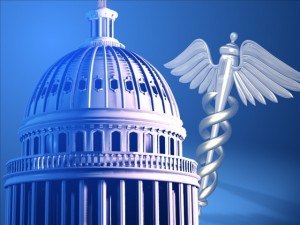 Late last week, House Republicans passed a package of rules that will guide the next (113th) Congress. Contained within these rules was a simple provision stating that “[The] Independent Payment Advisory Board … shall not apply in the One Hundred Thirteenth Congress.”
Late last week, House Republicans passed a package of rules that will guide the next (113th) Congress. Contained within these rules was a simple provision stating that “[The] Independent Payment Advisory Board … shall not apply in the One Hundred Thirteenth Congress.”
The Independent Payment Advisory Board, or IPAB, has remained one of the most controversial provisions of the Obama health care law since its passage.
At this time, it is still unclear whether this newly passed rule disregarding the IPAB will have effect. One of the controversies surrounding the law is the tough process it establishes if Congress wants to override IPAB recommendations.
The law states that Congress can, with difficulty and large majorities of both houses, replace (not set aside) the cuts recommended by IPAB. Alternately, if Congress does nothing, the recommendations become law. Whether The attempt by the House of Representatives to ignore the IPAB provision altogether will mean that the recommendation will simply become implemented anyhow remains to be seen.
What does the IPAB do?
Integral to the Obama Administration’s stated mission to drive down what Americans choose to spend for life-saving and health-preserving health care, the IPAB is charged with a key role in suppressing health care spending by limiting what treatment doctors are allowed to give their patients.
While the focus throughout this debate has been on the IPAB’s authority to cut Medicare with very limited Congressional authority to override or alter those cuts, National Right to Life has been emphasizing a still graver concern – one at the core of rationing in the Obama health care law. (See here.)
The health care law instructs the IPAB to make recommendations to limit what all Americans are legally allowed to spend for their health care to hold it below the rate of medical inflation. The health care law then empowers the federal Department of Health and Human Services to implement these recommendations by imposing so-called “quality” and “efficiency” measures on health care providers. (The documentation can be found here.)
What happens to doctors who violate a “quality” standard by prescribing more lifesaving medical treatment than it permits? They will be disqualified from contracting with any of the health insurance plans that individual Americans, under the Obama Health Care Law, will be mandated to purchase. Few doctors would be able to remain in practice if subjected to that penalty.
This means that a treatment a doctor and patient deem advisable to save that patient’s life or preserve or improve the patient’s health–but which exceeds the standard imposed by the government–will be denied even if the patient is willing and able to pay for it. Repeal of IPAB is critically important to prevent this rationing of life-saving medical treatment.
Since the passage of the Obama Health Law, the IPAB has faced tremendous opposition from Republicans and Democrats alike, and was even repealed in the House. No action was taken up by the Senate.
This article courtesy of National Right to Life.



